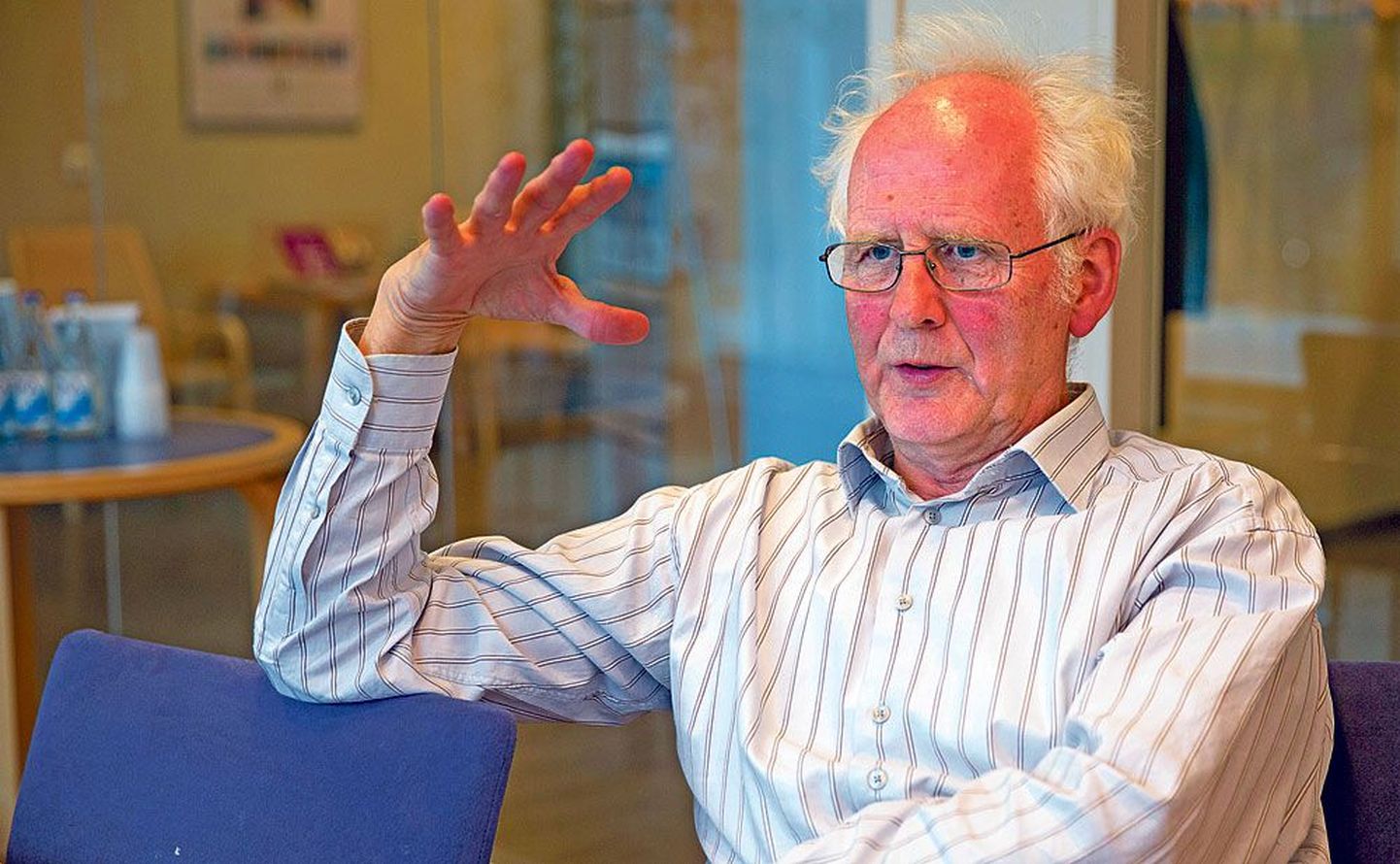
In light of past few days’ events there’s not much hope of search in Stockholm waters serving up something revealing, observes Ingmar Oldberg, a Russia policy expert at Swedish Institute for International Affairs.

In light of past few days’ events there’s not much hope of search in Stockholm waters serving up something revealing, observes Ingmar Oldberg, a Russia policy expert at Swedish Institute for International Affairs.
«The situation is very frustrating for Sweden. As also admitted by head of the intelligence operation, finding the object is highly complex. What’s more – we cannot exclude that whatever is there under water sees the vessels on the surface better than it is seen by searchers,» Mr Oldberg told Postimees.
A lot is at stake with the operation – the ability of Swedish state to protect its territorial integrity. Mr Oldberg, a man advanced in years, well remembers the latest submarine incident in Swedish waters as, in 1981, a Soviet S-363 sub hit underwater rocks near Karlskrona naval base while snooping near it. The location and the goal have stayed the same, what is changed is Sweden’s power to resist.
«Back then, Sweden had a much stronger capacity to search and sink submarines. Now, Sweden is weak in this area and, let’s be honest, this time we were rather surprised,» said Mr Oldberg. «Though pushed back at the moment on the Ukrainian and Baltic Sea front, Russia is reviving its military might. Enveloped in a revanchist mood, Russia is seeking to restore her former glory.»
According to the expert, the five days of search has mainly resulted in the affirmation that, to our knowledge, the navy has had no contacts with the object sought. If, pursuant to Tuesday’s decision, the numbers of Swedish vessels involved will be diminished, this may embolden the adversary.
«Most probably, the aim of the object is to find out, for instance, how Sweden is reacting, which alarm systems it has in active mode, and what the state is capable of in counterintelligence,» said Mr Oldberg.
«They may drop intelligence technology into the sea, for instance, or explosives. In the 1980ies they said these incidents were part of USSR’s invasion plan. This is also an option today.»
The claim by his colleague Thomas Ries, a lecturer at Swedish National Defence College, that the underwater object was preparing cutting the Baltics off NATO protection, is too lofty in Mr Oldberg’s mind.
«I don’t believe Russian navy is currently able to cut off the Baltics on its own. However, the region here may be a piece in the puzzle.» In his opinion, Russia currently is likely to have one or two region of direct intervention in the world, like we are now seeing in Ukraine. In the other locations, Russia is using single yet precisely targeted operations to test capacity of nations.
«I do not believe Mr Putin has a five year plan; rather, he has multiple plans on the table simultaneously. If he sees the situation allows for some of these to be executed, he will try to do it,» said Mr Oldberg.
The official talk by Russian defence ministry – that Russia’s activities in the oceans of the world is going according to plan and without any malfunctions – serves to say a lot when reading between the lines, says Mr Oldberg.
«The entire claim leaves the options open, actually. What’s more, it may be something other than a submarine. And also: it may be a device of some other service, not of the Russian navy. The idea they suggested it might be a Dutch submarine, is unheard of! This is total gibberish,» said Mr Oldberg.
Half a year ago, he continued, a grand operation to find an underwater object would have been surprising for him – but not anymore, in this geopolitical atmosphere.
«Ever since March, we have seen a boost in Russian activities on Baltic Sea and around the Baltic states. Now we see it also concerns us (Sweden – O. K.) and is drawing near us. This has been a shock, an alarm bell,» said Mr Oldberg.
Sadly for Sweden, earlier governments have not foreseen the change in the situation. «In hindsight, I think, we have perhaps been too optimistic regarding Russia. And too slow to react to Russia’s development under Mr Putin.»
Mr Oldberg is among the analysts who think Swedish neutrality needs now to undergo a wider discussion. «Sweden has been neutral for nearly 200 years. Many are convinced neutrality has saved us from being drawn into wars. I think we have just been lucky.»
According to him, Sweden is not faced with choosing between boosting defence spending or joining the NATO. «These two go hand in hand, and the number of our units must be increased anyhow. If Russia continues its threatening behaviour on the Baltic Sea, or if it is established that Russia is behind what is currently happening amid islands of Stockholm, this may force the new government to develop very close relations with NATO. So, in practice, the difference isn’t that big in near future,» said Mr Oldberg.